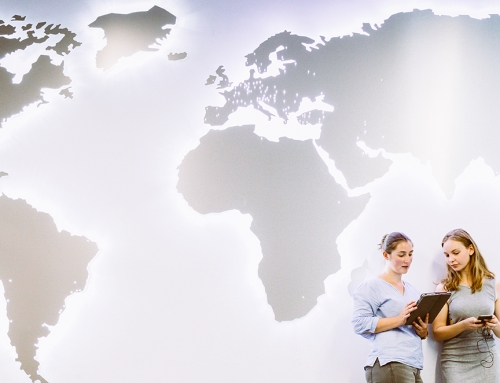Creating metals.
Creating values.
Whether in mobility, energy generation, electronics, communication, or medicine, metallic materials with their constantly improving features are a driving force for global trends. Metallurgy refers to the entirety of technologies for the sustainable extraction and processing of metals into metallic materials. Metal cycles include the extraction of metals from raw materials, processing into sophisticated materials, materials technology and manufacturing technology, as well as the recycling of metallic residues on the way to new secondary raw materials. Closing our metal cycles is the key to independence from raw material and energy imports and to achieving the European Union’s ambitious climate targets.
Based on a solid knowledge of the basics of STEM subjects, this course of study offers you an in-depth education in metallurgical subjects. These comprise the extraction of metals from raw materials and their processing into sophisticated materials. The rising requirements for product quality render basic knowledge of materials engineering and manufacturing engineering especially important. Key topics are current global trends like the decarbonisation of metallurgical processes for protecting the climate, the increase of energy efficiency and the closure of metal cycles by means of increased reintegration of secondary raw materials into metallurgical processes. Your digital skills will be enhanced by courses on the basics of data analytics and numerical simulation. We offer a variety of business economics-related education in combination with the basics in labour law, social law, environmental law and language courses, all of which round out this course of study. At the end of your studies, you can choose a topic from the entire Bachelor’s programme for your Bachelor’s thesis. One part of the study programme consists of a mandatory internship equal to 30 ETCS ( the equivalent of 80 working days) that should preferably be completed in an industrial company.
MASTER’S PROGRAMME
Building on an introductory course block teaching the basics of metallurgy and raw materials, there are six elective courses available, from which you can choose two. As a Master’s student, you can specialise in ferrous metallurgy, non-ferrous metallurgy, casting technology, forming technology, numerical simulation or industrial management. In addition, we offer course blocks on digital transformation and data analytics, materials science and thermal process technology/energy technology. The majority of the courses are taught in English.
Another facet of the Master’s programme is being able to hold presentations and write an initial academic paper, usually in cooperation with an industrial company. The last excursion to any of the continents has become the highlight for metallurgy students over the years.
FIELDS OF WORK
Global trends like the closing of materials cycles, the largely climate-neutral production of metallic materials and the digital transformation are, among others, creating a dynamic professional environment for future graduates. Professional activities for metallurgists include leadership positions in production, development, research, technical sale or plant construction. Austria’s metallurgical industry is highly developed and has urgent need of junior staff. Many graduates end up working abroad, either directly applying to foreign employers or via an Austrian company. This is why not only specialised knowledge, but also foreign language skills are taught.





